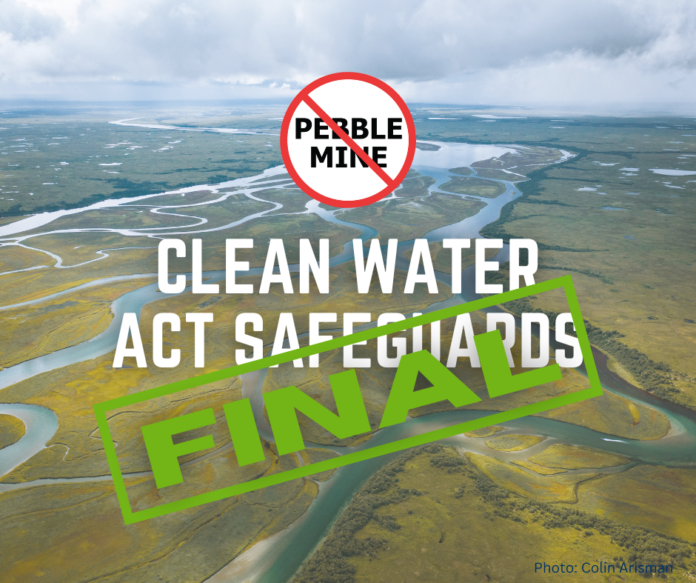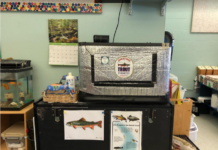Welcome to the latest installment of the Wednesday Wake-Up Call, a roundup of the most pressing conservation issues important to anglers. Working with our friends at Trout Unlimited, Backcountry Hunters & Anglers, the Theodore Roosevelt Conservation Partnership, The Everglades Foundation, Captains for Clean Water, VoteWater.org, and Conservation Hawks (among others), we’ll make sure you’ve got the information you need to understand the issues and form solid opinions.
1. EPA Puts Nail in the Coffin of Pebble Mine
Last week, the Environmental Protection Agency (EPA) issued a final determination under the Clean Water Act 404(c) that prohibits mine waste from being disposed of in the rivers and wetlands in and near the Pebble deposit. This is a huge victory for everyone who has been involved in working to protect the fragile habitat at the center of Alaska’s Bristol Bay.
The Pebble Mine project–which would have created the world’s largest open-pit mine at the headwaters of Alaska’s Bristol Bay watershed–was a threat to the last great wild-salmon run on the planet, as well as an ecosystem that supports everything from brown bears, to bald eagles, to rainbow trout, to hundreds of other species. It’s also an ecosystem that supports thriving sport-fishing and commercial-fishing industries, as well as a way of life that indigenous people have treasured for millennia.
Orvis president Simon Perkins remarked on some of the bigger messages of this conservation success:
“Today is an example of prioritizing the natural resource and all groups who benefit from it. Two important takeaways from this victory are that conservation takes a sustained effort, and that it has the power to unite us, from the commercial fishing industry to mining experts, to local Alaskans and native tribes, environmentalists and economists, and of course hunters and anglers. More than a decade’s worth of work by many paved the way to this decision. We have seen the power that a natural resource like Bristol Bay has to unify, and it’s a powerful reminder of the impact the natural world has on all of us.“
Click here for the full story on tu.org
Further Reading:
2. New Project Will Send More Fresh Water South to The Everglades
One of the keys to Everglades restoration is restoring the flow of fresh water south, all the way to Florida Bay. Last week, ground was broken for the Taylor Slough Flow Improvement Project, which will allow water to flow under the Old Ingraham Highway, no longer in use but still serving as a dam across Everglades National Park. By installing a series of culverts, the project will increase connectivity and improved hydrology.
Click here for the full story on miamiherald.com
Further Reading:
3. Roadless Rule Reestablished in Alaska’s Tongass National Forest

In 2020, then President Trump stripped away protections for the Tongass National Forest put in place in 2001. Now the Biden administration has reinstated the Roadless Rule and banned logging and road-building on about nine million acres of the Tongass National Forest in Southeast Alaska.
“As our nation’s largest national forest and the largest intact temperate rainforest in the world, the Tongass National Forest is key to conserving biodiversity and addressing the climate crisis,” Mr. Vilsack said in a statement. Restoring the road prohibitions “listens to the voices of Tribal Nations and the people of Southeast Alaska while recognizing the importance of fishing and tourism to the region’s economy,” he said.
Click here to read more on nytimes.com
Further Reading:
More Stories:
Credit: Source link






























